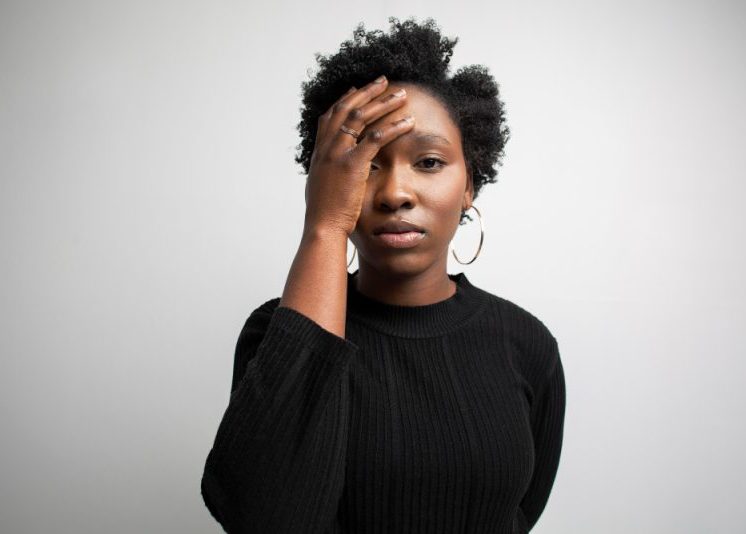When Doubt Takes Root: The Corrosive Power of Distrust in Love and Friendship

Aisha and Chidi had been friends since childhood. Their bond was the kind everyone envied – unwavering, supportive, and seemingly unbreakable. But lately, a subtle shift had occurred. It started with small things: Aisha noticing Chidi’s frequent late-night calls, the hushed tones when she walked into the room, and the vague explanations that left her feeling uneasy. Then came the whispers from mutual friends, “Did you know Chidi borrowed money…?” Aisha, who had always trusted Chidi implicitly, found herself questioning everything. The laughter they once shared felt strained, their conversations became guarded, and the easy camaraderie they’d always known was replaced by a heavy, unspoken tension. It was like watching a once vibrant painting fade, the colors slowly draining away, leaving behind a dull, colorless canvas. This, my friends, is the insidious power of distrust.
Distrust, at its core, is more than just a lack of belief. It’s a deep-seated uncertainty about another person’s intentions, actions, or words. It’s the constant questioning, the second-guessing, and the fear of being betrayed. Unlike healthy skepticism, which encourages us to be discerning, distrust creates a barrier, a wall that prevents true intimacy and vulnerability. Today, let’s delve into how this silent erosion happens and what it does to our bonds of love and friendship.
The Subtle Beginnings: How Doubt Takes Root
The seeds of suspicion are often planted in seemingly insignificant moments. A missed call that goes unexplained, a vague story that doesn’t quite add up, or a broken promise that leaves you wondering. These small inconsistencies, when left unchecked, can grow into a tangled web of doubt. Imagine a tiny crack in a wall – left unattended, it can widen and threaten the entire structure.
Our past experiences also play a significant role. If we’ve been hurt or betrayed before, we’re more likely to approach new relationships with a guarded heart. Insecurity can also fuel distrust, making us overanalyze every word and action, looking for hidden meanings where there may be none. This is the “silent erosion” I mentioned earlier. It’s not always a dramatic event; it’s the slow, steady drip of doubt that wears down our trust over time.
The Corrosive Effects: What Distrust Does to Our Bonds
Once doubt takes root, it begins to poison our relationships in several ways.
- Erosion of Communication: We become guarded, withholding information for fear of being judged or betrayed. The cycle of suspicion and secrecy creates a breeding ground for misinterpretations and misunderstandings.
- Increased Conflict and Arguments: Distrust fuels suspicion, turning minor disagreements into major battles. The focus shifts from problem-solving to proving or disproving accusations, and old wounds are constantly reopened.
- Emotional Distance and Isolation: We withdraw emotionally, feeling lonely even when surrounded by people. Intimacy fades, and we stop seeking comfort from those we once trusted.
- Damage to Self-Esteem and Security: Being constantly questioned and suspected can erode our self-confidence. We begin to doubt ourselves, feeling inadequate and insecure.
- Impact on Physical and Mental Health: The chronic stress of living with distrust takes a toll on our well-being. Sleep problems, headaches, anxiety, and depression can become unwelcome companions.
Cultural Context
In a culture that emphasises community and family, the impact of distrust can be particularly profound. We often rely on our social networks for support, and when those networks are compromised, the sense of isolation can be deeply painful. Cultural norms and expectations can also complicate matters, sometimes making it difficult to address trust issues openly.
Rebuilding (A Path to Healing)
While distrust can be devastating, it’s not always the end of a relationship. Rebuilding trust requires a commitment to honesty and open communication. It takes time, patience, and a willingness to understand each other’s perspectives.
- Honest Communication: Open and transparent dialogue is essential. We need to express our concerns and listen actively to each other.
- Time and Patience: Rebuilding trust is a gradual process. There are no quick fixes.
- Seeking Professional Help: Sometimes, a therapist or counselor can provide valuable guidance and support.
- Setting Healthy Boundaries: Protecting yourself while trying to rebuild trust is also important.
Conclusively, distrust is a silent killer, slowly eroding the foundations of our love and friendships. It creates a barrier that prevents us from experiencing the joy and connection that these relationships are meant to provide. But while the damage can be significant, healing is possible.
Trust is the cornerstone of any healthy relationship. It’s the glue that holds us together, the foundation upon which we build our lives. So, take a moment to reflect on your own relationships. Are there any seeds of doubt that need to be addressed? What steps can you take to cultivate trust and rebuild the bonds that matter most?
Let’s choose connection over corrosion and build relationships that stand the test of time.